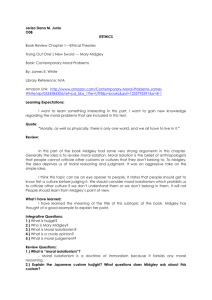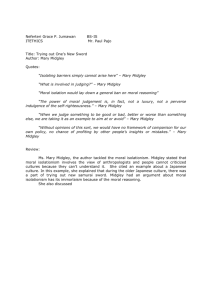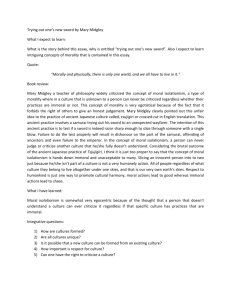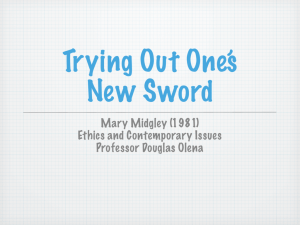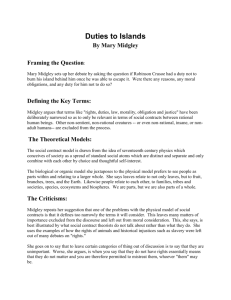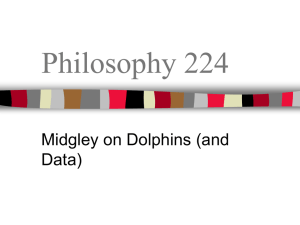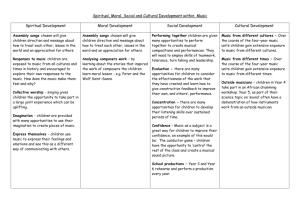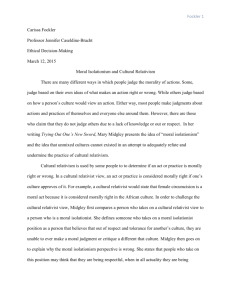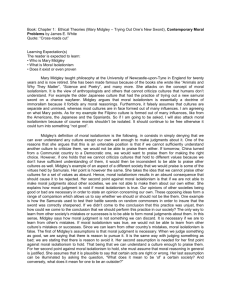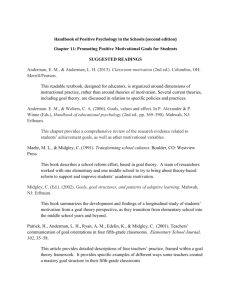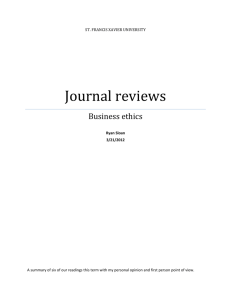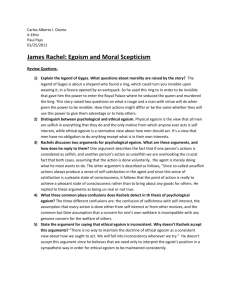mary midgley: trying out one's new sound
advertisement
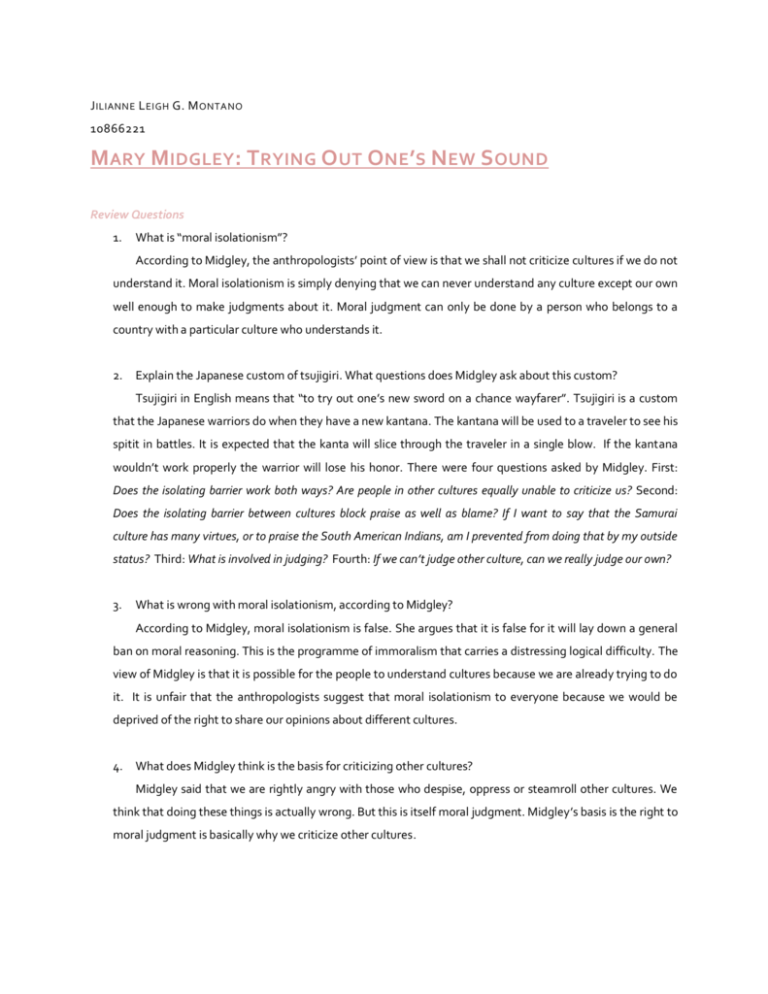
J ILIANNE L EIGH G. M ONTANO 10866221 MARY MIDGLEY : T RYING O UT ONE’S N EW S OUND Review Questions 1. What is “moral isolationism”? According to Midgley, the anthropologists’ point of view is that we shall not criticize cultures if we do not understand it. Moral isolationism is simply denying that we can never understand any culture except our own well enough to make judgments about it. Moral judgment can only be done by a person who belongs to a country with a particular culture who understands it. 2. Explain the Japanese custom of tsujigiri. What questions does Midgley ask about this custom? Tsujigiri in English means that “to try out one’s new sword on a chance wayfarer”. Tsujigiri is a custom that the Japanese warriors do when they have a new kantana. The kantana will be used to a traveler to see his spitit in battles. It is expected that the kanta will slice through the traveler in a single blow. If the kantana wouldn’t work properly the warrior will lose his honor. There were four questions asked by Midgley. First: Does the isolating barrier work both ways? Are people in other cultures equally unable to criticize us? Second: Does the isolating barrier between cultures block praise as well as blame? If I want to say that the Samurai culture has many virtues, or to praise the South American Indians, am I prevented from doing that by my outside status? Third: What is involved in judging? Fourth: If we can’t judge other culture, can we really judge our own? 3. What is wrong with moral isolationism, according to Midgley? According to Midgley, moral isolationism is false. She argues that it is false for it will lay down a general ban on moral reasoning. This is the programme of immoralism that carries a distressing logical difficulty. The view of Midgley is that it is possible for the people to understand cultures because we are already trying to do it. It is unfair that the anthropologists suggest that moral isolationism to everyone because we would be deprived of the right to share our opinions about different cultures. 4. What does Midgley think is the basis for criticizing other cultures? Midgley said that we are rightly angry with those who despise, oppress or steamroll other cultures. We think that doing these things is actually wrong. But this is itself moral judgment. Midgley’s basis is the right to moral judgment is basically why we criticize other cultures. Discussion Questions 1. Midgley says that Nietzsche is an immoralist. Is that an accurate and fair assessment of Nitezsche? Why or why not? In my own opinion Midgley’s assessment is neither fair nor accurate. As we all know, Nietzsche wrote a book about morality, then how come he would be an immoralist? Nietzsche has his own set of values that he might actually thinks that it is moral. 2. Do you agree with Midgley's claim that the idea of separate and unmixed culture is unreal? Explain your answer. I agree to some of points of her idea. Like, when she claimed that all cultures are different and cannot be mixed. And it is true that there are lots of differences in the world’s cultures. However, people may adopt some of others’ cultures like how we speak in English, how we call stuff in Spanish, how we ask for less in Chinese and etc.
